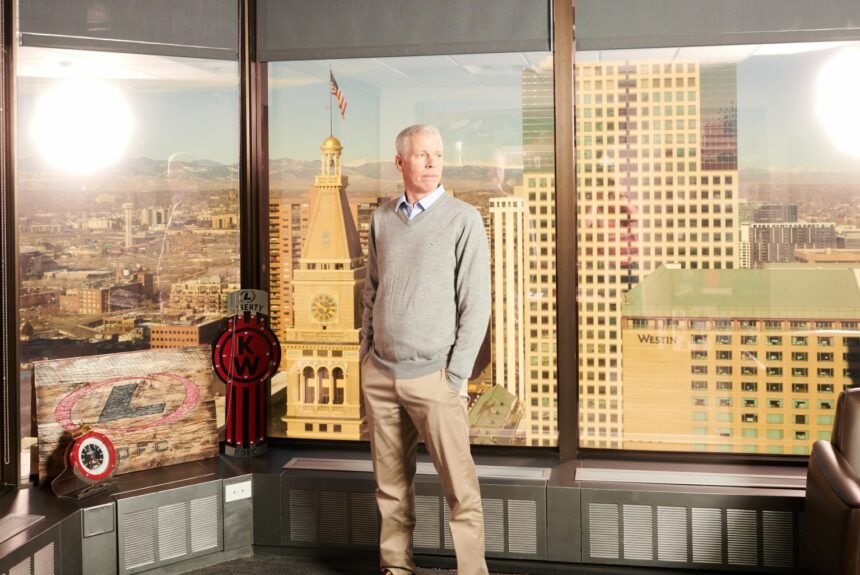Life today is more complicated than ever before.
Do you know how your smartphone works? Or how mRNA vaccines protect against infection? I don’t understand either of those things, but that doesn’t stop me from using the phone to access the internet, or getting a shot to protect against Covid.
>>>READ: A New Approach to U.S. Energy Policy in 2023
Energy is similar. When it gets dark, we turn on the lights. When it gets cold, we touch a thermostat to operate the furnace. Or, we use our smartphones when we are miles from home to operate the thermostat so the house is warm when we arrive. But we never think about where energy comes from or how it gets to us.
Recently Chris Wright, the CEO of Liberty Energy, created a 12-minute video to explain a bit of that complexity, and to explain why loaded terms such as “energy transition,” “carbon pollution,” and “clean energy” are deceptive. He posted the video on his LinkedIn page.
Unfortunately, a 12-minute video – longer than some podcasts! – may have presented too much information for some to deal with. Consider the coverage of Wright’s video in the Wall Street Journal, which is usually a careful news provider. “Energy CEO Fights Climate Science. And LinkedIn. North Face, Too,” the headline announced. Wright’s video did none of those things. The story under the misleading headline contained a link to the video, but instead of talking about the ideas Wright brought up, the story was more focused on whether LinkedIn was correct to briefly take the video down.
>>>READ: A Republican Plan to Strenghten U.S. Energy Policy
“This is one of the many reasons that journalism may be the greatest plague we face today, as the world becomes more and more complicated and our minds are trained for more and more simplification, ” iconoclastic thinker Nassim Taleb wrote almost two decades ago. Time proves him right. While the rest of the world is more complex, reporting on the world is getting shorter and simpler all the time.
The fact is that Wright’s video isn’t about conflict. It’s about Wright trying to reclaim a bunch of marketing terms that can be misleading or deceptive in the debate about climate and energy policy.
For example, in the video, Wright insists climate change is not a crisis. “Since the end of World War II, global human life expectancy, wealth and human opportunity have surged like never before,” he notes. “Any negative impacts from climate change were clearly overwhelmed by the benefits of increasing energy consumption.” There’s no guarantee that the cost-benefit trend will continue but Wright makes a point intellectually honest people ought to consider.
One ongoing crisis that Wright talks about is the indoor burning of wood or animal dung for cooking and heating. The World Health Organization says that the indoor air pollution this generates leads to 3 million needless death each year. Liberty Energy and other companies offer a simple solution: a cookstove with refillable propane canisters. “Over a billion people have made this transition,” Wright says, but “two-and-a-half billion people still lack access to clean cooking fuel.” Those people will be better off when they have fossil fuel stoves instead of collecting and burning animal waste for fuel.
Access to cleaner, more reliable power is an often-overlooked component of the climate discussion. As C3 has previously written, electricity access plays a pivotal role in bringing communities and countries up the economic ladder. This in turn allows these communities and countries to reduce disaster-related fatalities and turn their attention to addressing climate change’s impacts. As our Free Economies are Clean Economies notes:
More wealth provides more resources to devote to environmental protection. Greater levels of prosperity mean people will place a higher priority on environmental protection because they can afford to do so after more immediate needs (energy, food, drinking water) are met.
Wright is correct that when one reads “the science” in the IPCC report, there’s less reason for alarm and more reasons to take practical and sound steps to mitigate the risk. That is the way that humanity is going to handle climate change: not by creating conflict, but by working together to solve problems. Thankfully, leaders from both sides of the political spectrum are offering solutions to strenghten U.S. energy policy while addressing climate and environmental issues, as C3 Solutions has highlighted in the Climate and Freedom Agenda.
Wright has started a discussion. Feel free to disagree with him, but only if you are willing to join the discussion and offer your own solutions. I look forward to offering mine as well.
The views and opinions expressed are those of the author’s and do not necessarily reflect the official policy or position of C3.
